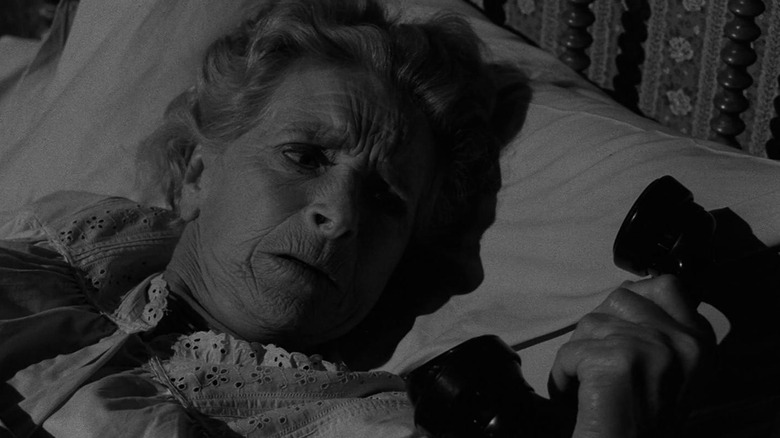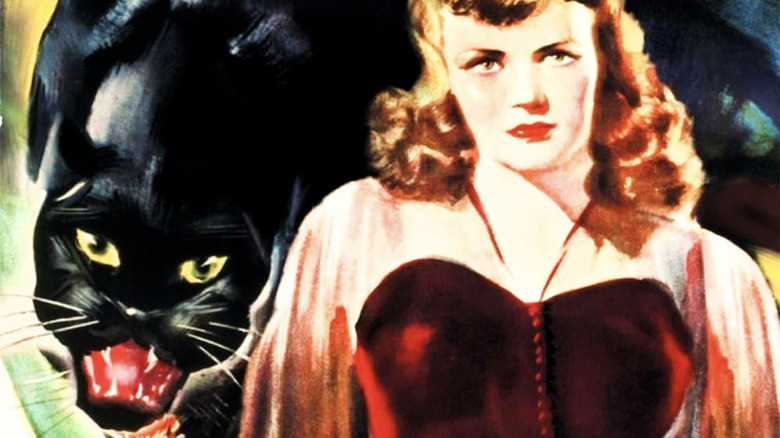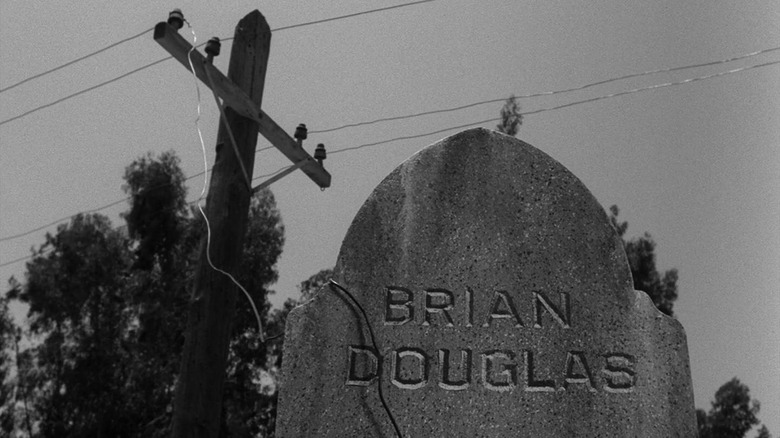The Twilight Zone's Night Call Was Directed By One Of Hollywood's First Horror Masters
Some of the most memorable ventures into "The Twilight Zone" are bottle episodes in spirit if not exact definition. "The Invaders" follows a woman in a remote cabin menaced by tiny aliens. "Nothing in the Dark" features not only a young Robert Redford but also an elderly woman (Gladys Cooper) scared that death will be arriving at her door.
Cooper returned for a similar "Twilight Zone" in the show's fifth and last season: "The Night Call" (written by prolific series writer Richard Matheson, adapting his own short story "Long Distance Call.") Cooper plays Elva Keene, an aged widow living in a Maine cabin who is dealing with repeated phone calls that always go silent whenever she picks up. Is it just a technical error, like her nurse assures her? Or is something sinister and supernatural lurking in the phone lines?
On "The Night Call," the guest talent wasn't only in front of the camera. The episode was directed by Jacques Tourneur, one of the first Hollywood masters of the horror genre.
Some brief history: "auteur theory" (the notion that the director is the author of a film) arose in critical circles, such as the French film magazine Cahiers Du Cinéma (first published in 1951). One tenet of the theory is that even directors working in the studio system on crowd-pleasing pictures — like Westerns and musicals — still left a personal thumbprint on the genre. Tourneur's work in horror is a perfect example of how the schlockmeisters of the early 20th century became heralded masters decades later.
Who was Twilight Zone director Jacques Tourneur?
Born in France as the son of filmmaker Maurice Tourneur, Jacques followed in his father's footsteps. After making four films in his homeland, he went to Hollywood in the 1930s. He directed four thrillers for MGM from 1939 to 1941, then jumped over to RKO Pictures and partnered with producer Val Lewton. Their first movie together was 1942's "Cat People," a B-movie about Serbian-American Irena Dubrovna (Simone Simon) convinced she's a werecat; clues pile up to suggest her delusions are anything but.
"Cat People" is remembered as a work of pure atmosphere. Tourneur's experience making Noir pictures meant he brought the same heavy-cast shadows when he moved into horror. You know how "Jaws" is praised as scarier because it keeps the shark largely offscreen? "Cat People" did that first. Irena's transformations are all offscreen and all cat attacks are performed with a real black panther. The film's budget and available tech simply couldn't make anything else work without undermining the atmosphere, so neither Tourneur nor Lewton tried.
The minimalist horror of "Cat People" even resulted in the jump scare formula horror directors still use today. In a pivotal scene, Alice (Jane Randolph) senses something unseen is following her. When she makes it to her bus stop, a cat's growl erupts into the sound of a bus entering the frame from the right-hand side.
Tourneur didn't only make horror movies after that; he directed the 1947 noir classic "Out of The Past," starring Robert Mitchum. Still, "Cat People" remains his most celebrated film. It was already a legend by 1952. In Vincente Minnelli's "The Bad and the Beautiful," abrasive film producer Jonathan Shields (Kirk Douglas) breaks into the business of producing the cheap horror movie "Doom of the Cat Men," which he and the director save by keeping the monsters offscreen. Val Lewton, is that you?
Is The Night Call a Twilight Zone classic?
Tourneur's film career was largely over by the 1960s (his last movie was the Vincent Price picture "City Under the Sea," released in 1965). He'd started supplementing his directing work with TV projects, though. An advantage of anthology shows like "The Twilight Zone" is that since each episode stands on its own, it's easy to bring in a director to let them make an episode in their style. That's one reason that Tourneur's most prolific TV work was an 11-episode-long run on "The Barbara Stanwyck Show."
Does "The Night Call" hold up to Tourneur's horror films? Like in "Cat People," the horror remains ominous and invisible, with the viewer being left to imagine what's in store for Elva. The faults of "The Night Call" lie in the script. The twist is that the caller is Elva's long-dead fiance Brian, who was killed when she insisted on driving one night and crashed their car. He's not calling out of malice but to reconnect across the other side — until one night (when Elva's frightened and doesn't know the truth), she tells him to leave her alone. When she tries calling him back the next night, Brian reminds her that she spurned him.
Rod Serling's closing narration says that the sobbing Elva, "in every sense has made her own bed and now must lie in it." Yet this feels disproportionately unjust. Elva's supposed flaw (that she's too bossy) feels both told, not shown, and undeserving of her punishment. The intended moral of "The Night Call" collapses under the narrative's slightness. Worse, the short story has a much scarier ending; the caller (who remains unidentified) tells Elva, "I'll be right over." This chilling punchline works best as a closing line of text, granted, but the changes in adapting "The Night Call" make the story less effective, even if Tourneur was up to the task of directing.


